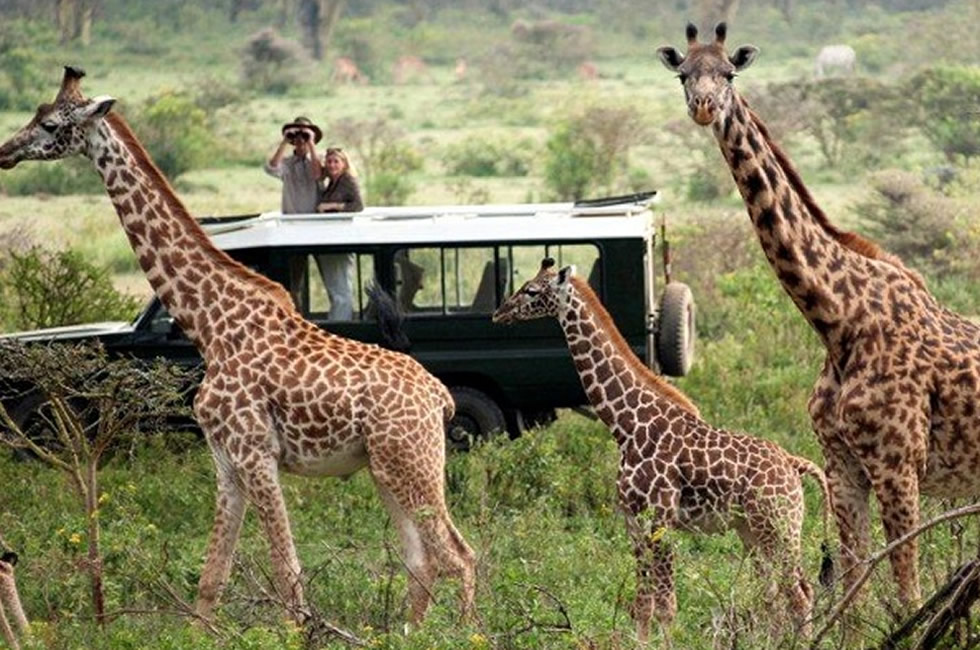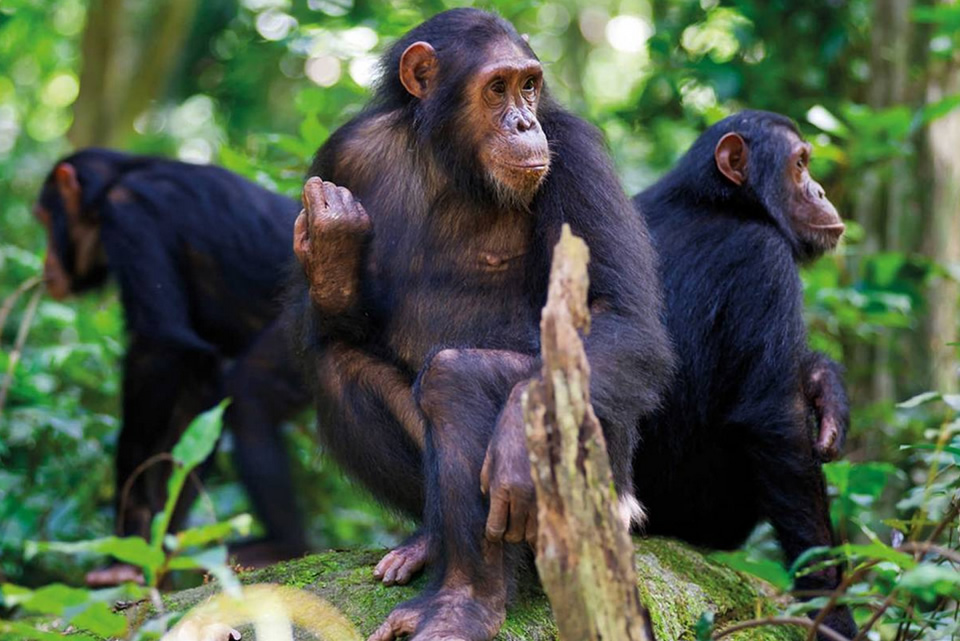
Rwanda Lifts Covid-19 Tests For Park Entry
In a bid to revive its struggling tourism industry amidst the aftermath of the COVID-19 pandemic, the Rwanda Development Board (RDB) made an important announcement on Monday, May 29, 2023. Tourists planning to explore Rwanda’s national parks will no longer be obliged to undergo COVID-19 testing. However, individuals visiting primates within these parks will still be required to wear face masks, as emphasized by the RDB.
The decision comes as a welcome relief for travelers, as they will no longer need to provide a negative COVID-19 test to access the national parks. The RDB’s statement explicitly mentions that this relaxation applies to all tourists, including children above five years old, when applicable. Nonetheless, the mandatory use of face masks for those engaging with primates is a measure aimed at safeguarding both human and animal health.
In response to the COVID-19 outbreak in Rwanda, the RDB swiftly implemented strict regulations to protect tourists and wildlife within the national parks. These regulations included compulsory COVID-19 testing and the mandatory use of face masks throughout the pandemic.
Charter flight arrivals also faced rigorous testing requirements, necessitating a negative COVID-19 test taken within 72 hours prior to arrival, along with a second test before visiting any tourist attractions.
The recent decision to eliminate COVID-19 testing for tourists aligns with the World Health Organization’s declaration on May 5, 2023, stating that COVID-19 no longer poses a “global health emergency.” The policy change aims to foster the recovery of Rwanda’s tourism industry, which has been severely impacted by the ongoing pandemic.
RDB data reveals that Rwanda’s tourism revenues experienced a remarkable surge in 2022, reaching 445 million U.S. dollars. This figure signifies a substantial growth of 171.3 percent from the previous year. The potential for nature-based tourism to propel the country’s economic growth has been emphasized in the latest RDB report.
Gorilla trekking, a captivating and unique tourist attraction in Rwanda, played a significant role in driving revenue. The RDB reported that it generated an impressive $113 million in revenues alone.
In 2022, Rwanda experienced a surge in visitors to its national parks, welcoming approximately 110,000 tourists. This surge represents a remarkable increase of 142.4 percent compared to the previous year, highlighting the country’s appeal as a tourist destination.
The RDB has set its sights on an ambitious target of increasing tourism receipts to $800 million by 2024, demonstrating a commitment to the sector’s growth and resurgence.
As Rwanda moves forward with a more relaxed testing policy, it hopes to entice more visitors, both local and international, to explore its natural wonders and contribute to the country’s tourism-driven economic recovery.
About the Rwanda Development Board: The Rwanda Development Board (RDB) is a government agency responsible for the promotion and sustainable development of Rwanda’s tourism, investment, and export sectors. With a focus on enhancing Rwanda’s global competitiveness, the RDB plays a vital role in driving economic growth and attracting investments in various industries.
Read More
Chimpanzee Tracking in Rwanda and Uganda
Both Uganda and Rwanda are known for their conservation efforts and commitment to ecotourism, offering unforgettable experiences. Among the most popular activities in the two countries is gorilla trekking. Besides gorilla trekking in Rwanda and Uganda, both countries offer chimpanzee tracking.
Let’s compare the chimpanzee tracking experiences in Rwanda and Uganda to help you make an informed decision for your adventure.
Chimpanzee Tracking In Rwanda
Chimpanzee tracking in Rwanda (Nyungwe National Park) varies according to your citizenship. Foreign none residents are charged $150 per person inclusive of a guide while foreign residents are charged $75 per person inclusive of a guide.
Chimpanzee Tracking Location
Rwanda’s primary location for chimpanzee tracking is Nyungwe Forest National Park, situated in the southwestern part of the country. The park’s lush greenery and diverse ecosystem provide an excellent habitat for chimpanzees.
Accessibility
Nyungwe Forest National Park is easily accessible from the capital city, Kigali, with a comfortable drive of about 5-6 hours. The well-maintained roads make the journey enjoyable and convenient.
Chimpanzee Habituation
In Nyungwe Forest, chimpanzees are fully habituated, meaning they are accustomed to human presence. This unique opportunity allows for a closer and more immersive experience during your chimpanzee tracking adventure. You can observe their natural behaviors up close.
Biodiversity
Nyungwe Forest is renowned for its biodiversity. Besides chimpanzees, you have the chance to encounter other primate species, such as colobus monkeys, and a wide variety of bird species. This makes the overall experience even more captivating and rewarding.
Hiking Experience
Chimpanzee tracking in Nyungwe Forest often involves trekking through dense vegetation and navigating steep terrain. While this can be physically challenging, the stunning surroundings and the thrill of the adventure make it truly worthwhile.
Chimpanzee Tracking In Uganda
Chimpanzee tracking in Uganda also varies according to location and citizenship. A chimpanzee permit goes for $200 in Kibale forest, $100 in Budongo forest, and $50 in Kalinzu and Kyambura Gorge.
Chimpanzee Tracking Location In Uganda
In Uganda, the main location for chimpanzee tracking is Kibale National Park, situated in the western part of the country. Additional options include Budongo Forest Reserve and Kyambura Gorge in Queen Elizabeth National Park, offering diverse settings for your chimpanzee tracking experience.
Accessibility
Kibale National Park is relatively easily accessible from the capital city, Kampala, with a pleasant drive of about 4-5 hours. However, do note that the condition of roads leading to other locations may vary.
Chimpanzee Habituation
In Uganda, chimpanzees are usually semi-habituated, meaning they are familiar with human presence to some extent but not fully habituated. This allows for a close encounter with these remarkable creatures while ensuring their well-being and conservation.
Biodiversity
Kibale National Park is renowned for its diverse primate population, including chimpanzees and red colobus monkeys. Budongo Forest and Kyambura Gorge also offer rich biodiversity, enhancing your wildlife experience beyond chimpanzee tracking.
Additional Activities
Uganda provides exciting opportunities for other wildlife experiences. You can embark on gorilla trekking adventures in Bwindi Impenetrable National Park, where you’ll encounter these magnificent creatures in their natural habitat. Queen Elizabeth National Park offers thrilling game drives to spot a variety of wildlife, adding further depth to your safari experience.
In conclusion, both Rwanda and Uganda offer remarkable chimpanzee tracking experiences, each with its own unique attributes. In Rwanda’s Nyungwe Forest, you can enjoy fully habituated chimpanzees, a biodiverse ecosystem, and challenging hiking trails.
In Uganda’s Kibale National Park, you’ll find semi-habituated chimpanzees, a diverse primate population. Uganda also offers chimpanzee tracking in the Budongo forest of Murchison falls national park, Kalinzu Forest near Queen Elizabeth national park, and Kyambura Gorge in Queen Elizabeth national park.
Consider factors such as accessibility, biodiversity, permits, hiking difficulty, and other activities that interest you to make the best choice for your chimpanzee tracking adventure. Whichever country you choose, you’re bound to create lasting memories and contribute to the conservation efforts of these incredible primates. Enjoy your safari!
Read More